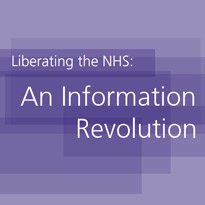Info revolution will ‘erode privacy’
- 11 January 2011

Department of Health plans to give patients control of their records will erode patient privacy, a leading medical defence body has claimed.
The Medical Protection Society has raised a series of concerns about the government’s plans for the use of information in the NHS in its response to the ‘Liberating the NHS: Information Revolution’ consultation, which closes this week.
The MPS says it is supportive of the principles that underpin the plans. But it warns it is essential that they should not compromise patient confidentiality.
It argues that the proposals to give patients ‘control’ of their records will lead to an inevitable “general incremental erosion of patients’ privacy.”
It also argues that confidentiality might be compromised if there is widespread access to patient information and that the needs of vulnerable patients and children need particular consideration.
The defence body also asks how patient and public expectations of the reforms will be managed, given that there will be no additional central funding to pay for the information revolution.
Dr Stephanie Bown, director of policy and communications at the MPS, said the proposals to encourage more effective use of technology were welcome but she added: “The notion that a health and social care information revolution will benefit everyone is highly aspirational and unlikely to be achieved, at least in the immediate future.”
Dr Bown said the MPS fully supported plans to promote openness in healthcare. However, she argued that a "cultural shift" towards a “culture of candour” would be far more effective than introducing legislation to mandate openness.
She added: “Information can be used to support communication, improve knowledge and to promote shared decision making – but it is essential that an information revolution does not compromise patient confidentiality. Appropriate safeguards should be addressed from the outset.”
The MPS praised the advent of the Emergency Care Summary in Scotland. It said this had been “particularly advantageous” for out of hours services, A&E departments and forensic physicians.
It added: “We hope that similar positive improvements will be seen following the information revolution in England.”
The MPS further argues there could be medico legal and jurisdictional issues regarding telemedicine. It says these would need to be clarified to avoid high costs in the long term and there are “inherent risks” in online access to health professionals.
It says online access to increase demands on clinician time and lead to unrealistic expectations. It contends that clear lines will have to be drawn on the type of information that could be communicated online between clinicians and patients.
It adds: “We do not believe this should in any way substitute for face-to-face consultations which is a core component of medical care.”
The MPS also said it was concerned about some aspects of current patient feedback sites and said MPS members had already faced problems due to lack of adequate safeguards and monitoring.
It urged the government to ensure that robust mechanisms were in place to prevent the publication of inappropriate or defamatory comments.
It added: “We note that, for instance, feedback from the travel and leisure industry about such sites is beginning to flag up a number of issues related to inaccurate to deliberately false information being placed on such sites.”
The MPS said there would be “huge benefits” in central accreditation or other quality assurance systems for information providers and argued that these would outweigh the cost and bureaucracy involved.
The DH consultation closes on Friday, 14 January.




